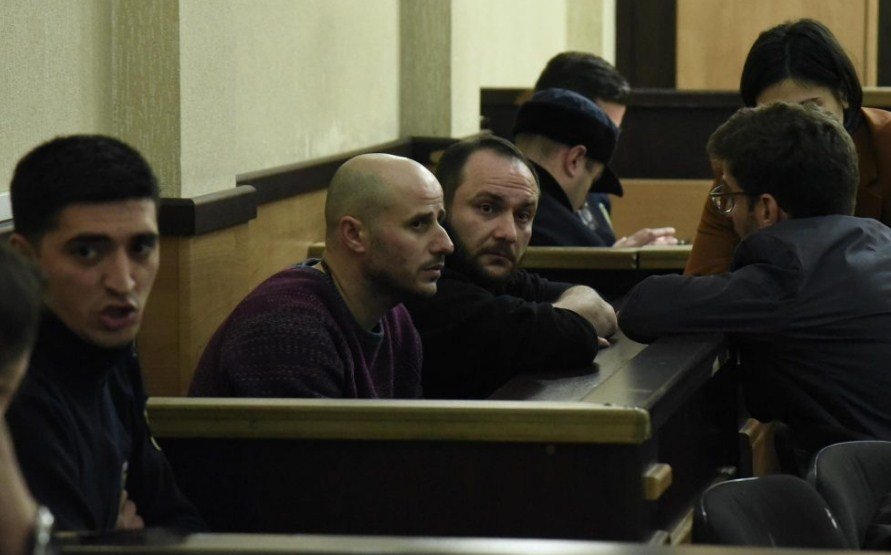The Tbilisi City Court has decided to release two protesters who were detained for damaging an Enforcement Police car during the forced eviction of a family on Kekelidze Street on January 23. The court set a bail of GEL 3,000 for each of the defendants, Akaki Chikobava and Giorgi Khasaia, who were charged under the Criminal Code of Georgia.
The Eviction That Sparked Outrage
The eviction of the Khatiashvili family from their apartment on Kekelidze Street in Tbilisi triggered a wave of public outrage and protests. The family claimed that they had been living in the apartment for 18 years and had paid off their mortgage, but the National Enforcement Bureau said that they had failed to fulfill their obligations to the creditor bank and had to vacate the property.
The eviction process was met with resistance from the family and their supporters, who barricaded themselves in the apartment and threw objects at the police. The police used force to break into the apartment and remove the family, as well as to disperse the protesters who had gathered outside. Several people were injured and arrested during the clashes, including Chikobava and Khasaia, who allegedly smashed the windshield of an Enforcement Police car.

The Court’s Ruling and the Defendants’ Reaction
The Tbilisi City Court held a hearing on February 5 to review the pretrial detention of Chikobava and Khasaia, who faced up to three years in prison for hooliganism. The court granted the prosecution’s motion to release them on bail, but rejected the defense’s request to drop the charges.
The defendants and their lawyers expressed dissatisfaction with the court’s decision, saying that they were innocent and had acted in self-defense. They also claimed that the police had used excessive force and violated their rights. They said that they would continue to fight for justice and support the Khatiashvili family, who are still homeless and seeking legal remedies.
The Wider Context of Evictions in Tbilisi
The Kekelidze Street eviction case is not an isolated incident, but rather a symptom of a larger problem of evictions in Tbilisi. According to the Public Defender of Georgia, there have been several cases of forced evictions in the city in recent years, often involving vulnerable groups such as low-income families, internally displaced persons, and ethnic minorities. The Public Defender has criticized the lack of transparency, accountability, and proportionality in the enforcement procedures, as well as the inadequate protection of the rights and interests of the evicted persons.
The evictions have also sparked public protests and solidarity movements, demanding fair and humane solutions for the affected families. One of the most prominent examples is the Dadiani Street eviction case, which involved the Kakiashvili family, who were also facing eviction from their apartment due to a bank debt. The eviction was temporarily postponed after a large-scale demonstration on January 24, which coincided with the Kekelidze Street eviction case. The protesters called for a moratorium on evictions and a revision of the legislation and policies governing the enforcement process.
